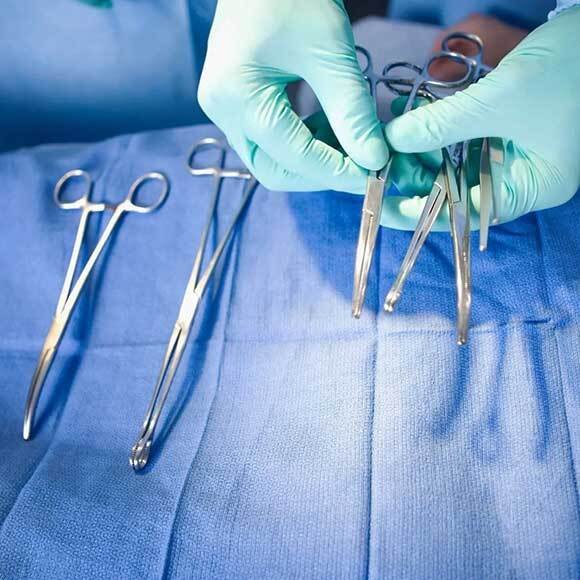.jpg)
- 03 Aug 2024
- Medimax Admin
Instrument Care and Maintenance: A Guide for Surgical Professionals
Proper care and maintenance of surgical instruments are essential for ensuring their longevity, performance, and safety. By following these guidelines, you can help to prevent damage, contamination, and costly repairs.
Cleaning
Immediate Cleaning: Clean instruments immediately after use to prevent blood and bodily fluids from drying.
Appropriate Cleaning Solutions: Use enzymatic or detergent-based cleaning solutions specifically designed for surgical instruments. Avoid harsh chemicals that can damage the instruments.
Mechanical Cleaning: Use a brush or ultrasonic cleaner to remove debris from delicate areas.
Rinsing: Thoroughly rinse the instruments with clean water to remove all cleaning solution residue.
Sterilization
Sterilization Methods: Choose a sterilization method that is appropriate for the instrument type and regulatory requirements. Common methods include autoclaving, dry heat sterilization, and gas sterilization.
Sterilization Indicators: Use sterilization indicators to verify that instruments have been properly sterilized.
Packaging: Package instruments in sterile wrappers or pouches before sterilization.
Storage
Clean Storage Area: Store instruments in a clean, dry environment.
Proper Storage: Store instruments in a way that prevents damage and contamination. Consider using instrument trays or racks to organize and protect them.
Regular Inspection: Inspect instruments regularly for signs of damage, corrosion, or dullness.
Additional Tips
Avoid Overloading: Avoid overloading autoclaves or dry heat sterilizers, as this can affect the sterilization process.
Handle Instruments with Care: Handle instruments gently to prevent damage.
Follow Manufacturer's Instructions: Always follow the manufacturer's instructions for cleaning, sterilization, and storage of specific instruments.
Regular Maintenance: Schedule regular maintenance for your sterilization equipment to ensure optimal performance.
By following these guidelines, you can help to maintain the quality and safety of your surgical instruments. Proper care and maintenance will not only extend the life of your instruments but also contribute to a safer and more efficient surgical environment.


.jpg)
